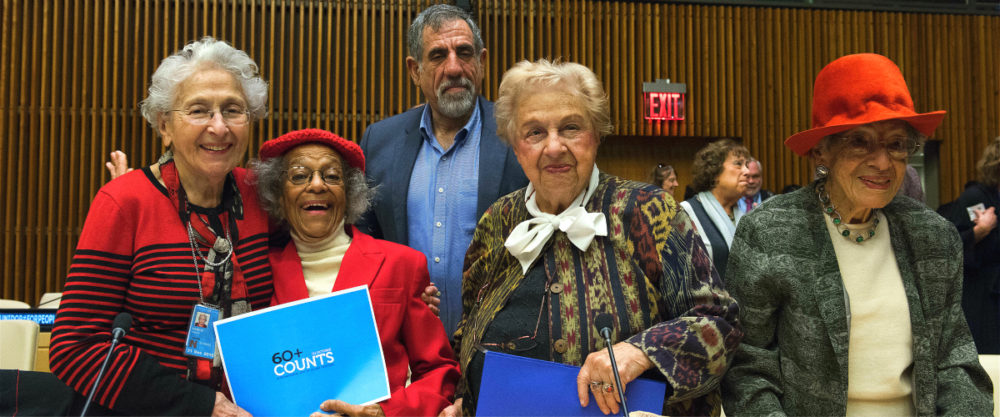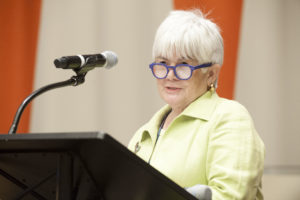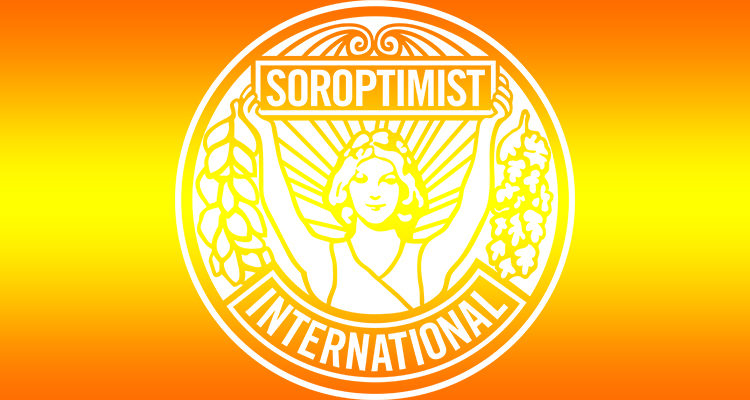A blog by Sharon Fisher SI President-Elect
“On December 14, 1990, 1 October was designated as International Day of Older Persons by Resolution 45/106 of the United Nations General Assembly.
Today there are 700 million people world-wide over age 60, and it is expected to increase to 1.4 billion by 2030 and 2 billion by 2050 when 20% of the global population will be over 60. The greatest increase will be in the developing world with Asia having the largest number of older persons. Africa is growing at the same proportionate rate. If we are to follow the Secretary General’s guiding principle of “Leaving No-One Behind” we must understand and respond to the developmental challenges in addressing older persons.

Photo: Participants of the Special event on “Sustainability and Age Inclusiveness in the Urban Environment” (on the occasion of the International Day of Older Persons), UN Headquarters’, Oct. 2015. Courtesy UN Photo/Kim Haughton
While we have known our population is ageing, little attention has been given to the experiences of older women. We know women live longer, poverty rates among older women remain high and women continue to experience discrimination and barriers to equality throughout their lives. We need to understand better their experiences. Only then can we develop law reform and policy solutions that address the pressing barriers to their well-being.
What are some of the barriers to the well-being of older women?
- Income Security –this is Older Women’s most pressing issue. Poverty and fear of poverty is a common concern. Many older women are struggling to survive on limited fixed incomes with increased costs for health care, transportation and caring for family members.
- Housing Insecurity and Homelessness – Housing costs mean that women are living in unsafe or inappropriate housing.
- Work and the Impact of Caregiving – Older women have challenges caring for loved ones as well as themselves. Caregiving has limited their work history. Or they encounter discrimination when they try to remain in the workforce.
- Family Dynamics and Vulnerability Linked to Immigration – Immigration impacts the ability to qualify for certain funding. Separation from family creates hardship when changes occur in their children’s lives.
- Safety and Freedom from Abuse – Some older women experience bullying by family or a chronic lack of respect. It is much harder for older women to leave an abusive relationship. They also experience financial abuse and controlling behaviour by family, creating an uncertain future.
- Accesses to Justice and Information – Many older women have difficulty accessing information on rights or options. They are still treated as less valuable than a younger person in most of the world’s cultures.

Photo: SI UN Rep Frances Zainoeddin, Co-Chair of the International Day of Older Persons Planning Committee, NGO Committee on Ageing, speaks at an event.
Are all of these challenges inevitable as we age? No! The lack of action is a form of Ageism! Ageism starts with neglect and disrespect and can lead to abuse. We all, including the older adults themselves, need to watch our language for comments that are frequently made as humor about an older person. Ageism results in behaviour which can cause serious physical, emotional and financial damage.
The theme for International Day of Older Persons for 2018 is “Celebrating Older Human Rights Champions”! Older persons have much to offer and can contribute to the change we need. Let’s not make this a “hidden generation”. Older persons are typically those who cast a vote in elections. Part of the solution is to give them a voice at the table for Advocacy and Engagement.
We want women to not only live longer, but also age well!”
The 2018 UN theme aims to:
- Promote the rights enshrined in the Declaration and what it means in the daily lives of older persons;
- Raise the visibility of older people as participating members of society committed to improving the enjoyment of human rights in many areas of life and not just those that affect them immediately;
- Reflect on progress and challenges in ensuring full and equal enjoyment of human rights and fundamental freedoms by older persons; and
- Engage broad audiences across the world and mobilize people for human rights at all stages of life.
Find out more HERE

